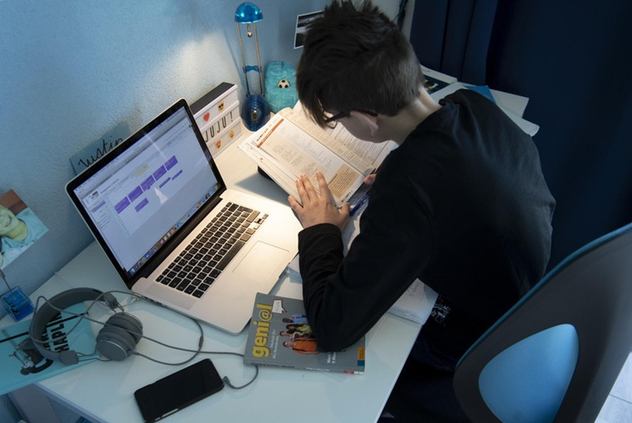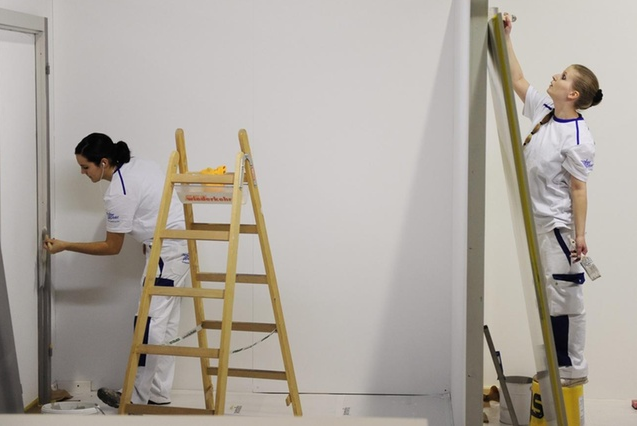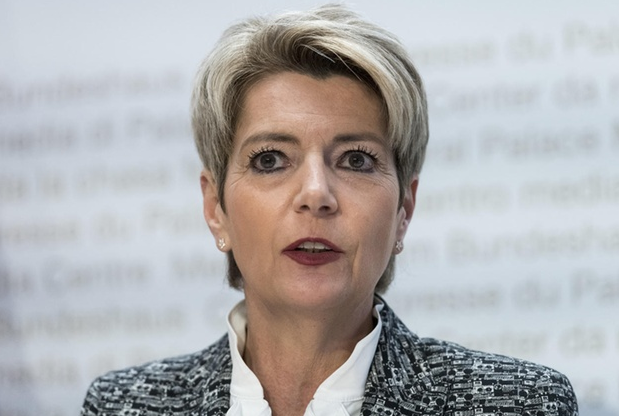Schoolwork at home: some do more, some do less (Keystone / Laurent Gillieron) There is a big difference in the amount of time pupils are spending at their studies during the corona school closures, a Swiss-led study has found. Some children are doing five or more hours a day, others just one or two. This is one of the main findings of the School Barometerexternal link, led by the Institute of the Management and Economics of Education (IBB)external link of the University of Teacher Education Zug, and published on Sunday. It surveyed over 7,100 pupils, parents, teachers and other interested parties in Switzerland, Germany and Austria to find out how people are coping with the school closures. In Switzerland, schools have been closed since March 16, leaving around
Topics:
Isobel Leybold-Johnson considers the following as important: 3.) Swiss Info, 3) Swiss Markets and News, Education, Featured, newsletter
This could be interesting, too:
Investec writes The best places to be a working woman in 2025 – Switzerland near the bottom
Nachrichten Ticker - www.finanzen.ch writes Die Performance der Kryptowährungen in KW 9: Das hat sich bei Bitcoin, Ether & Co. getan
Nachrichten Ticker - www.finanzen.ch writes Wer verbirgt sich hinter der Ethereum-Technologie?
Martin Hartmann writes Eine Analyse nach den Lehren von Milton Friedman

Schoolwork at home: some do more, some do less (Keystone / Laurent Gillieron)
There is a big difference in the amount of time pupils are spending at their studies during the corona school closures, a Swiss-led study has found. Some children are doing five or more hours a day, others just one or two.
This is one of the main findings of the School Barometerexternal link, led by the Institute of the Management and Economics of Education (IBB)external link of the University of Teacher Education Zug, and published on Sunday. It surveyed over 7,100 pupils, parents, teachers and other interested parties in Switzerland, Germany and Austria to find out how people are coping with the school closures.
In Switzerland, schools have been closed since March 16, leaving around one million pupils relying on remote learning. It is not yet clear when schools will reopen, although an announcement could be made after a government meeting on April 16.
+ The latest corona developments in Switzerland
Concern group
Of particular concern in the survey was the almost 20% of young people aged 10-19 who said they were doing under nine hours of schoolwork a week.
“Nearly every fifth child regards this time as holidays or as a really stressful experience but is not using it for learning,” said Stephan Huberexternal link, the IBB’s head and the survey’s instigator.
Lack of motivation and/or lack of support and resources at home were the most likely explanations. Huber has also heard of reports – in Switzerland – of schools having to buy some families flat rate internet to ensure they could reach some pupils.
At the other end of the scale, around a third of pupils are spending 25 hours or more a week learning, Huber told swissinfo.ch. A further third is doing around 20 hours a week (between 15 and 25 hours).
Overall, as the graphic below shows, the average time pupils said they spent on schoolwork was around 18 hours. (Usually pupils of the same age in canton Zurich for example spend up to 26 hours in school).
Educational gap
Concerns have already been raised among education experts that remote learning could contribute to widening Switzerland’s educational gap, a long-standing problem.
For example, children of academic parents are more likely to get into baccalaureate school, which prepares pupils for university, than those with parents who have a lower level of education (50.6% of pupils versus 12.2%, according to some figuresexternal link.) Huber also warns that this educational divide could increase if school closures continue over a longer time.
International research has shown that time spent learning is one of the most important predictors for learning outcomes, he said.
+ Read our previous story on the possible long-term effects of school closures here
Respect for school, new forms of learning
On the other hand, 50% of pupils did report that they were missing school. Also striking was parents’ new respect for teachers. “We have quotes in the report in which parents have said that after working with my child over the past few days they really appreciate the work of teachers,” Huber said. “They explain how challenging it is to teach their own children.”
The survey also revealed “a big group of motivated teachers, principals and schools which are using the necessity of the situation to push digital learning environments,” Huber added (even if the levels of know-how varied across schools or even within institutions).
Schools are using digital learning environments to differentiate tasks and tailor teaching to the individual pupil’s needs, Huber said. He could therefore see blended learning – a mix of classroom and digital learning – becoming more of a fixture in the future.
Tags: Education,Featured,newsletter








